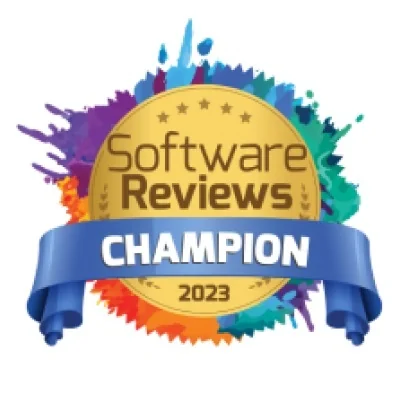As you may know, Amnon Drori is the co-founder and CEO of Octopai. What you may not know is that this is actually Amnon’s second automation-focused company. We sat down with Amnon to discuss the benefits of automation, how he sees the future for BI teams and what key factors will help businesses succeed.
Q: This is the second company that you’ve chosen to work with that has focused on automation. Why do you think that is?
A: Automation enables the organization to obtain faster results. We see this in many spaces – automation in manufacturing companies, robotics, automated testing. The interesting thing about Octopai is that the data management and business intelligence world has reached such great complexity that automation evolved from “a nice to have” to a “must have.” I believe that metadata automation improves the organization, thereby improving each individual employee. It allows many daily processes inside an organization to become significantly more effective, accurate and perform at a higher level.
Q: How does automation benefit the individual employee?
A: After speaking with hundreds of BI & Analytics professionals over the past few years, metadata automation has been proven to benefit professional achievement and quality of life. For example, by automating different processes, employees no longer have to spend full days and nights trying to understand how the data has moved around throughout the BI environment. They can now get a complete understanding of the data movement process within just a few seconds. Now, these BI professionals have the time to hone in and utilize their skills, dramatically impacting the organization.
Q: How does automation benefit a business?
A: We see metadata automation impacting an organization in three main areas. These include:
- Data accuracy and trustworthiness
- Money saved. A huge amount of money is saved in the daily operation of data as companies realize they can find the information they need in seconds instead of investing days tracking the data movement process. This is achieved with automated data lineage and data discovery.
- Time saved (TTM). Business users want to get the data faster, and BI teams are typically the bottleneck. Automation enables the organization to act fast in the face of constant changes that require data at any given point in time, resulting in significant time savings.
Q: What is the process for businesses that decide not to automate? Meaning, why don’t we see every organization automating?
A: In my experience, this sometimes has to do with really not believing that automation is possible – essentially skepticism. I experienced this at my previous company that did automation for ERP upgrades, turning months of work into only 48 hours. Due to the radicalness experienced when adopting automation, it’s hard for people to believe that it can actually be done, and therefore it’s necessary to build trust, which takes time.
We can’t forget that change is not trivial for many people, and some often feel very uncomfortable with change and moving away from what they’ve known for years. Otherwise, why would an organization decide to spend 10 times more time and money over choosing automation? Unfortunately, if you aren’t using metadata automation , you’re holding your company back from becoming better and advancing.
Q: What is the role of automation when it comes to data and BI?
A: I saw this time and time again in my last two companies – it is important to remember that automation doesn’t aim to replace people, but rather, it should be a tool used to empower employees so they can have more time to complete projects that are more interesting and impactful. Data lineage automation changed the physics for BI and aims to enable employees to improve. It is important that employees do not suffer when they are striving to become better, and companies should not compromise on risk due to time and resources.
Sick of all the manual mapping required to sort out inconsistencies in your data?
Learn how automation is the key to fixing your BI blues.
Download the Whitepaper
Q: How do you see the future of BI and the role of BI Managers?
A: I think that Data and BI Managers prefer to get rid of the infrastructure and the “plumbing” that needs to be managed in order to get accurate data quickly. Over the past few years, we see many organizations wanting to understand the data and its implications more quickly, but at the same time wanting to spend less time getting there. As data management systems and infrastructure are becoming richer, more complex and more expensive, Octopai offers a low-risk and low-cost solution.
Q: Do you think automation matches the new personality and generation of BI Managers?
A: New BI & Analytics managers want to make more of an impact. They strive to achieve more, become quicker and work extremely accurately. Most importantly, they want to be intelligent. In order to achieve this, you cannot do things the old-fashioned, manual way. Just like there is testing automation, there’s BI Automation and metadata automation.
Q: Where do you see automation in the next five years? The next ten years?
A: I believe that automation can elevate to the level of AI. Automation will free up time so employees can understand what optimizations are needed based on their data. This is a world when automation will manage the entire BI apparatus for them. This can include anything from basic automation to Machine Learning to Artificial Intelligence. Automation will enable the analysis of the data, its possible results and what it means for the organization, which will allow the Data Manager to make better informed decisions.
As an example, almost no one drives anywhere without turning on Google Maps or Waze. People don’t write down directions or check paper maps anymore, because these apps make it so much easier, faster and efficient to get where you’re going. So, once automation is the preferred way to work, this new generation of BI managers won’t even be able to imagine performing their job in any other way.
Q: Any other comments or thoughts?
A: I recently read that according to Gartner, “by 2020, 80% of organizations will initiate deliberate competency development in the field of data literacy, acknowledging their extreme deficiency.” Companies are beginning to really look to their data as an intelligent way to strategize and invest their time and effort in areas that are most beneficial. Additionally, as the world moves towards automation, it is important not to forget the humans behind the machine. Ahmer Inam, the chief A.I. officer at technology services firm Pactera Edge, suggested that A.I. systems should always be designed with a “human in the loop,” who is able to intervene when necessary. As incredible as automation is, companies are made up of people and we shouldn’t overlook this. With the current state of the world, COVID-19 has actually encouraged companies to adopt automation. Leslie Joseph from Forrester states, “now, [automation] is taking on a new urgency, not just in the context of cost but also as a tool for risk mitigation and business resiliency.” Like Leslie, I see automation as an enhancement to the way in which businesses and their employees operate.








